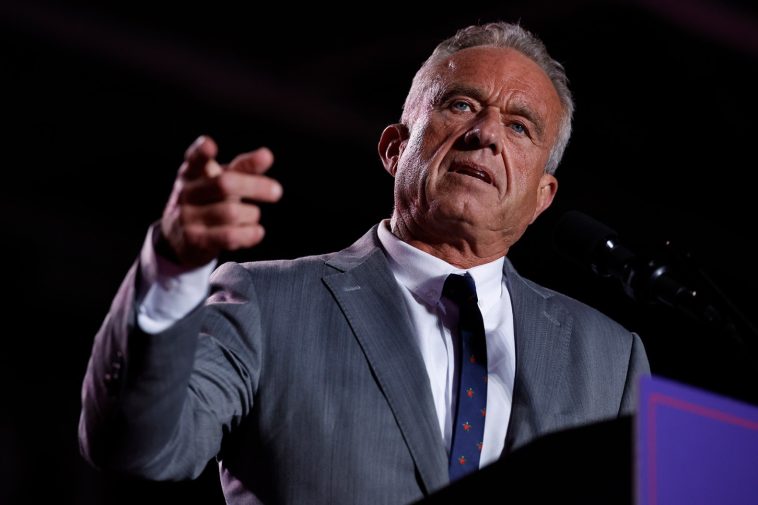Robert F. Kennedy Jr. has been confirmed by the Senate as the Health and Human Services Secretary, despite objections from both Arizona senators. Interestingly, this development was a win for former President Donald Trump who had endorsed Kennedy for the paramount health role. However, Senators Mark Kelly and Ruben Gallego from Arizona expressed their apprehension, characterizing Kennedy as a potential public health risk.
Senator Mark Kelly made his feelings known earlier this week. Speaking from the perspective of a parent and grandparent, he highlighted the fact that Arizona families are deeply concerned about their children’s well-being. Their primary aim, he emphasized, is to ensure the health and safety of their families, particularly their children.
According to Kelly, parents already find it challenging to discern what is true in today’s rapidly evolving information environment. Therefore, the last thing they need is a new authoritative voice that could potentially add confusion rather than clarity to health-related issues. Kelly expressed this point in the context of Kennedy’s confirmation.
Kennedy’s confirmation went through by a narrow margin in the Senate, with a 52-48 vote happening mostly along party lines. Both Kelly and Gallego went on record with their votes against Kennedy’s confirmation. Notably, Senator Mitch McConnell, a strong Republican voice from Kentucky, broke ranks to side with the Democrats and vote against Kennedy.
As the new secretary for the Department of Health and Human Services, Kennedy will be helming a vast organization. The agency has a critical role in supervising Medicare, Medicaid, the Centers for Disease Control and Prevention, the Food and Drug Administration, the National Institutes of Health, and the Indian Health Service, among other important health bodies in the country.
Kennedy’s appointment raised eyebrows due to his contentious views on vaccines in the past. Although he recently stated that he is not inherently opposed to vaccinations, his previous claim that vaccines contribute to autism has been cause for concern among many.
As the head of the Department of Health and Human Services, Kennedy will now be supervising two significant federal bodies that shape vaccine policies: the Food and Drug Administration (FDA) and the Centers for Disease Control and Prevention (CDC). This factor has further exacerbated concerns, considering Kennedy’s previous comments on vaccines.
Senator Mark Kelly also took umbrage at Kennedy’s assertion that antidepressants – not firearms – were the underlying cause of school shootings. Kelly drew on a personal experience to make his point, recounting the mass shooting near Tucson that almost claimed the life of his wife, former Representative Gabrielle Giffords.
Kelly pointed out the tragedy where six individuals lost their lives and twelve were wounded. According to him, anyone involved in that horrific incident would find it hard to concede that a surplus of mental health treatment was the root cause of such a terrifying event. Kelly voiced this concern in the context of Kennedy’s stance on antidepressants.
Following the confirmation vote, Senator Ruben Gallego expressed his disapproval of Kennedy’s appointment. However, it wasn’t all criticism. The confirmation was praised by some members of the Senate, many of whom were Republicans.
Representative Andy Biggs of Arizona, who is currently campaigning for the governor’s position, applauded Kennedy’s confirmation. He described it as a setback for pharmaceutical giants – often referred to as ‘Big Pharma’ – and a step forward in the pursuit of universal health for the American people.
Biggs further asserted that the day of Kennedy’s confirmation was a crucial one. In his view, it was a bleak day for those entrenched in the pharmaceutical industry, but a triumphant one for those advocating for better health policies and programs.


